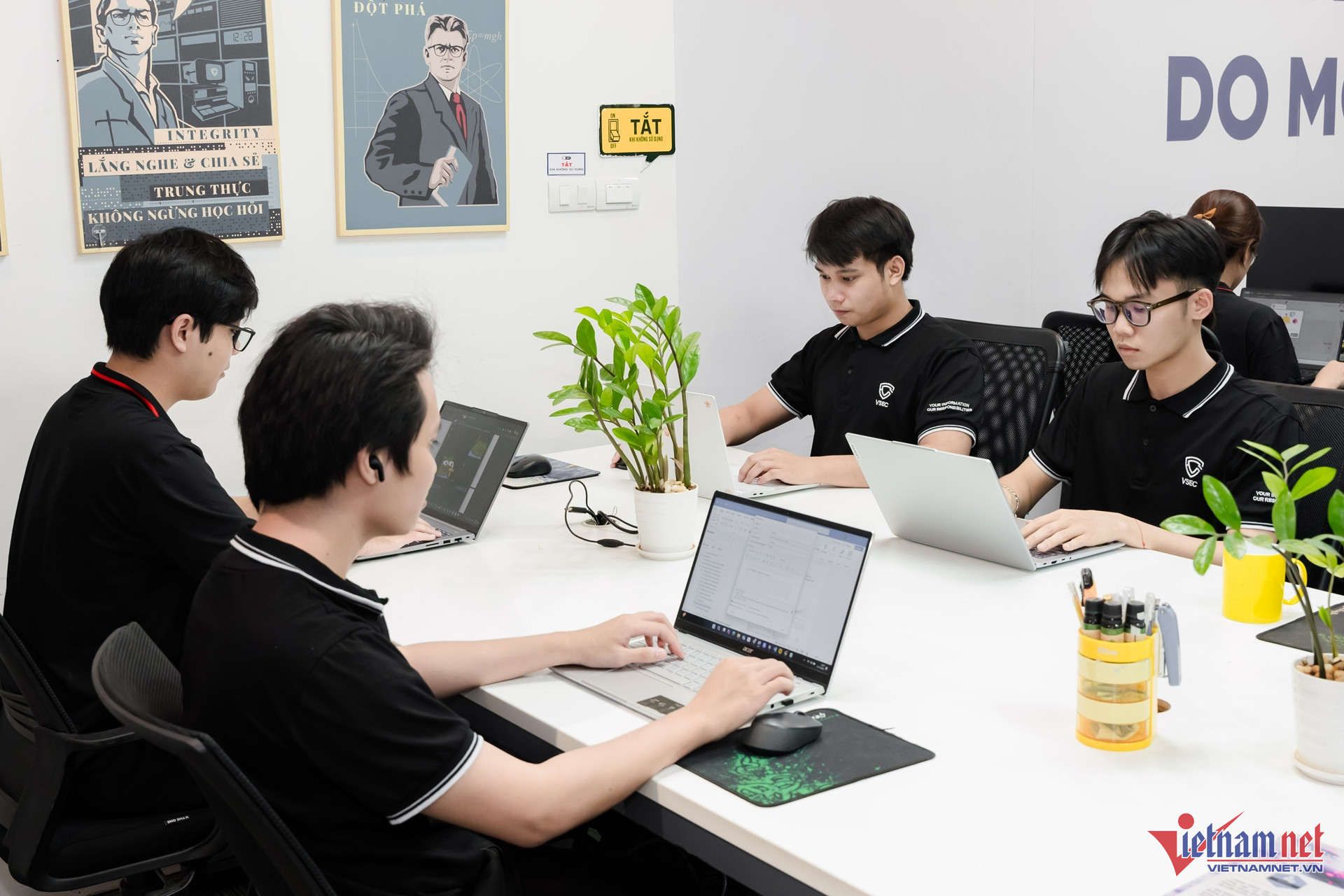According to a newly released study from Microsoft Vietnam, 91% of Vietnamese business leaders surveyed are considering hiring roles specifically related to artificial intelligence (AI) – 13% higher than the global average.
The findings are detailed in the “2025 Work Trend Index” published on June 12 by Microsoft Vietnam. The report surveyed 31,000 business leaders and employees across 31 countries, including 1,000 respondents in Vietnam.
Alongside labor and recruitment trend analysis from LinkedIn and productivity patterns from Microsoft 365, the 2025 report introduces new perspectives from local AI startups, economists, scientists, and academic experts.

The study reveals that the human workforce is reaching its limits, and a growing gap is emerging between employee capabilities and employer expectations.
In Vietnam, 67% of leaders surveyed said productivity needs to improve, while 84% of workers admitted lacking the time or energy to complete their tasks. These rates exceed the global averages of 53% and 80%, respectively.
AI's rapid evolution has allowed organizations to break free from constraints related to headcount or staff expertise. Intelligence is now seen as a “sustainable resource” – abundant, essential, cost-efficient, and scalable on demand.
The survey also shows that 95% of Vietnamese business leaders expect to expand their workforce using digital labor within the next 12 to 18 months, compared to 82% globally.
Additionally, 83% of surveyed Vietnamese executives believe AI will empower less-experienced employees to take on strategic roles sooner.
Over the next 6 to 12 months, the top five areas anticipated for AI investment include product development, customer service, marketing, cybersecurity, and financial performance. These will be followed by financial forecasting, business intelligence, customer analytics, legal services, human resources, and supply chain management.
Speaking at the report’s launch, Nguyen Quynh Tram, General Director of Microsoft Vietnam, emphasized that digital labor will reshape even the most established enterprises and give rise to new companies that were previously unimaginable.
Microsoft's analysis of LinkedIn labor and hiring trends reveals that top AI startups are recruiting at twice the pace of major tech corporations. Globally, 78% of business leaders said they are considering AI-specific hires, compared to 91% in Vietnam.

Survey results suggest that early adoption of AI agents in Asia-Pacific nations like Vietnam will deliver a strong competitive edge in the coming decade. Just as the internet created billions of knowledge-based jobs, the AI era is introducing entirely new roles.
Examples of emerging AI roles in Vietnam and globally include AI trainer, AI and data agent specialist, return on investment analyst, and AI strategist in marketing, finance, and customer service.
Experts advise workers to proactively develop AI-related skills, while urging organizations to provide the tools and training needed to support this transformation. According to the report, AI fluency and digital literacy are now the top two workforce strategies.
Basic AI knowledge is now rated as the most essential skill for the future of work, alongside conflict resolution, adaptability, process optimization, and creative thinking.
Nguyen Quynh Tram added that AI has democratized access to knowledge that was once exclusive to large corporations, empowering individuals and small businesses to succeed regardless of their size or technical capacity.
“However, technology only delivers real value when people are ready to embrace and work with it. This means leaders must invest not only in technology but also in fostering digital mindsets, building digital skills, and driving collaboration between people and AI agents. This is the key to helping Vietnamese businesses accelerate and lead in the AI era,” she stressed.
Van Anh